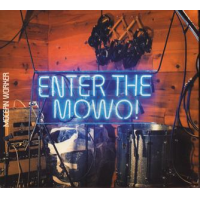Home » Jazz Musicians » Les McCann
Les McCann
Already established on the soul jazz scene of the 1960s, Les McCann became an international jazz superstar with the release of “Swiss Movement,” recorded at the 1968 Montreux Jazz Festival with the late Eddie Harris. The album generated a multi-million selling hit single, "Compared To What," and placed McCann and Harris in the forefront of the jazz market. There was a lot more to Les McCann than that show in Switzerland,both before and after. As a musician, he moved comfortably from one jazz style to the next, demonstrating impressive chops from bop to fusion, from vocals to virtually any kind of keyboard he puts his hands to.
Born in 1935 in Lexington, Kentucky, Les is a self-taught musician. In the early fifties, he left the South and joined the Navy. While stationed in California, he took every opportunity to visit San Francisco's jazz clubs, where he first experienced Miles Davis and his music. His first major influence though, was pianist Erroll Garner, who shared the same exuberance and bursting vocalizations. After his discharge from the military, McCann moved to Los Angeles and formed a trio, Les McCann Ltd., which became a favorite on the Sun Strip in the late fifties.
Les McCann was recommended by Miles Davis to play with Cannonball Adderly, but turned it down in order to form his own band. In 1960, McCann was signed to the L.A.-based Pacific Jazz, where he became the label's top-selling artist, debuting with “Plays the Truth.” (1960) He also co-headed albums with label mates such as organist Richard "Groove" Holmes, saxman Ben Webster, The Jazz Crusaders and the Gerald Wilson Orchestra.
McCann's laid-back personality has always been an opening for musicians to perform together. 1960/2 Antibes Jazz Festival was a hit as he shared the stage with Ray Charles and Count Basie. The following year he toured Europe with Zoot Sims and Charlie Byrd. He would move constantly, playing in countless sessions with the greatest names in jazz. He co-produced the debut album from Lou Rawls, “Stormy Monday,” (1960) and appeared on records with Stanley Turrentine, who played sax on McCann's “In New York,” (1960) and McCann on Turrentine's “That's Where It's At.” (1960) In the early seventies, McCann heard Roberta Flack for the first time at a nightclub in Washington D.C., and immediately became her champion, as he did similarly with Mahalia Jackson and Nancy Wilson. After a brief stint on the Limelight label (subsidiary of Mercury Records), McCann signed to Atlantic Records in 1967, his first major label deal. His perfect marriage of church and swing captured the spirit of the times in the same way that Ray Charles' mixture of gospel and blues heralded the arrival of soul.
Read moreTags
Les McCann: Never A Dull Moment! Live from Coast to Coast 1966-1967

by Stefano Merighi
Vi sono sempre stati musicisti di jazz per i quali la musica è immediatezza, semplicità, gioia di vivere, empatia senza fronzoli. Les McCann era uno di questi. Il pianista del Kentucky, morto alla fine dello scorso anno, ha sempre privilegiato una comunicazione diretta con il suo pubblico, basata su quell'irresistibile mix di swing, soul con venature gospel che ne hanno messo a fuoco il marchio di fabbrica. Eppure, negli anni '70, anche Les ha subito una fascinazione per ...
Continue ReadingCTI Acid Jazz Grooves by Various Artists

by Arnaldo DeSouteiro
The CD you are holding in your hands is a very special compilation. It's the celebration of CTI as one of the most “sampled" labels on Earth! For the past ten years, many CTI tracks have been cut up, sampled, scratched and looped to create new songs for a new audience. Many of the selections on this album (all of them produced by Creed Taylor and engineered by Rudy Van Gelder) represented the basic inspiration and major influence in the ...
Continue ReadingLes McCann: Never Say No Again

by Chris M. Slawecki
"Be who you are and not who you ain't. Because when you are who you ain't, you're not who you are." Keyboardist, vocalist, bandleader, songwriter and photographer Les McCann really talks like this. About his music, about musicians, about his career--about everything. I learned this during the following interview, scheduled to discuss Omnivore Records' March 2015 reissue of McCann's improvisational landmark Invitation to Openness, generally out of print since its original 1972 Atlantic Records' release; this reissue was ...
Continue ReadingA Conversation With Les McCann

by AAJ Staff
Les McCann has a new release on Joel Dorn's 32 Records entitled How's Your Mother?. I had an opportunity to chat with the pianist/vocalist from his home about the release, his humble beginnings in Kentucky, his distaste for the current trends in music, and about the highly successful album with Eddie Harris, Swiss Movement, recorded live at the 1968 Montreux Jazz Festival. All About Jazz: Growing up in Kentucky, what made you want to play jazz music?
Continue ReadingNew Releases + Some Soul, Electric Funk and a Hot California set of '50s Cool

by David Brown
This week new releases from Chad Taylor and James Brandon Lewis, a soulful set of Ramsey Lewis (RIP), getting funky with the Electric Eddie Harris, Les McCann and Yusef Lateef, then a shift to a hot California set of '50s cool, and more. Playlist Thelonious Monk “Esistrophy (Theme)" from Live at the It Club-Complete (Columbia) 00:30 Don Byas Quintet “All The Things You Are" from Americans ihn Europe vol. 2 (Impulse! ) 02:00 Chad Taylor Trio “Subterfuge" from ...
Continue ReadingFree Association - Vol. 2 with Michael Blake

by Ludovico Granvassu
Free Association is a series of collaborative mixtapes curated by Mondo Jazz in association with musicians and selectors of various origins. Free Association mixtapes develop as a conversation. The first selector sends a tune cherry-picked to suit, and ideally surprise, the second selector who then, in turn, returns the favor. An hour or so into this exchange, after unexpected turns and joyful revelations, the two look back at the results of this game of ...
Continue ReadingFunk Jazz: '60s-'70s

by Douglas Payne
Somewhere between the soul-jazz of the early sixties (often called “funk" in its day) and the disco of the mid-seventies, funk jazz was born. Rock was already crossing over into jazz. And it just made sense that rock would inject soul jazz with a greater sense of urgency and a stronger feel for the groove. Funk had that thing that made soul and any other kinds of dance music what it was--a deep, true conviction to getting you ...
Continue ReadingLes McCann (1935-2023)

Source:
JazzWax by Marc Myers
Les McCann, a self-taught soul-jazz pianist and singer whose essence and feel were deeply rooted in the black church of his youth and the bars in black neighborhoods where jukeboxes were stocked with early soul-pop and blues singers such as Al Hibbler, Arthur Prysock, Ray Charles. Brook Benton, Clyde McPhatter and Floyd Dixon, died on December 29. He was 88. The freedom of McCann's playing and his earthy and original collaborations with saxophonist Eddie Harris led to seminal works that ...
read more
Les McCann: Live From Coast to Coast, 1966-1967

Source:
JazzWax by Marc Myers
Prior to the 1969 release of pianist Les McCann's hit live album Swiss Movement, I was never much of a fan. In the 1960s, on studio LPs, he seemed a melange of pianists I liked better, including Red Garland, Gene Harris and Billy Taylor. The percussive, soul-jazz approach he favored seemed better articulated in the hands of the Cannonball Adderley Quintet. For me, McCann always sounded more dynamic live. In performance recordings, he came across as freer and spiritually present, ...
read more
Les McCann "Invitation To Openness" Reissued on Omnivore Recordings

Source:
conqueroo
Through the chart-topping 1969 song “Compared To What, “ Les McCann became known to thousands of people as an inspirational “soul-jazz" pianist and vocalist. Since its first release in 1972, Les McCann's Invitation To Openness album (Atlantic Records) has remained a landmark statement in free-form improvisation mixed with soulful grooves, featuring a 26-minute continuous track with expressive instrumentation from the likes of Yusef Lateef, Ralph MacDonald, Cornell Dupree, Bernard Purdie, and Alphonse Mouzon. After years as an out-of-print collectible, Invitation ...
read more
Jazz This Week: Les McCann and Javon Jackson, Fran Landesman, Cooper-Moore, TKT Memorial Scholarship Concert, and More

Source:
St. Louis Jazz Notes by Dean Minderman
There's lots going on in jazz and creative music this week in St. Louis, and so we bring you StLJN's weekly highlights post slightly earlier than usual to perhaps better help facilitate some advance planning.One of the week's major attractions is the team-up of pianist and singer Les McCann (pictured) and saxophonist Javon Jackson, who will perform Wednesday through Saturday at Jazz at the Bistro. Both men previously have led their own bands at the Bistro, but their ...
read more
STLJN Saturday Video Showcase: Les McCann and Javon Jackson

Source:
St. Louis Jazz Notes by Dean Minderman
This week's videos feature keyboardist Les McCann and saxophonist Javon Jackson, who will be in St. Louis next week to perform Wednesday, October 22 through Saturday, October 25 at Jazz at the Bistro. Their team-up is billed as “Swiss Movement Revisited," a reference to McCann's collaboration with the late saxophonist Eddie Harris and the famous live album the two recorded in 1969 at the Montreux Jazz Festival in Switzerland. In part because ...
read more
Les McCann & Javon Jackson to Replace McCoy Tyner at 2008 Telluride Jazz Celebration June 6 & 7

Source:
MFA - Mitchell Feldman Associates
Acclaimed Jazz Pianist Withdraws On Physician's Advice As High Altitude of Festival In Colorado Mountain Resort Poses Threat To Tyner's Health
The Telluride Society For Jazz today announced that pianist McCoy Tyner has upon medical advice withdrawn from the 2008 Telluride Jazz Celebration (TJC) as his physician is concerned that the high altitude of the alpine resort in Colorado's San Juan Mountains where the festival takes place poses a threat to Tyner's health. The acclaimed pianist suffers from high blood ...
read more
Eddie Harris and Les McCann - Composition Entitled "Compared to What"

Source:
All About Jazz











































